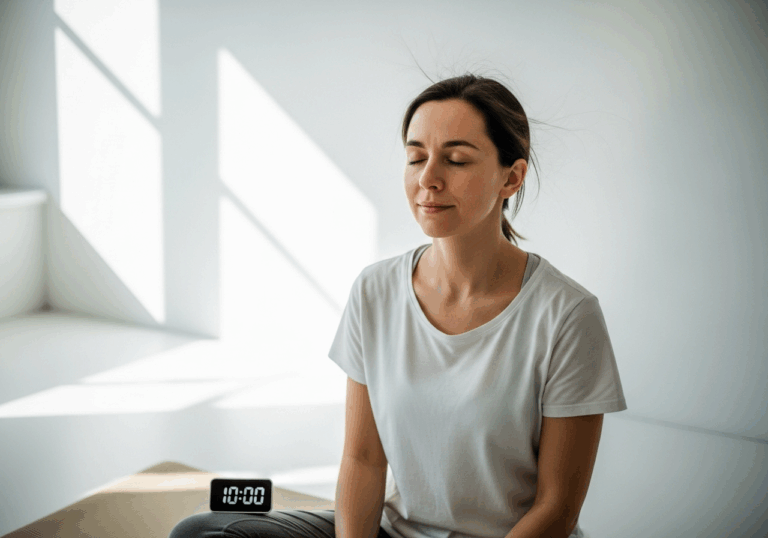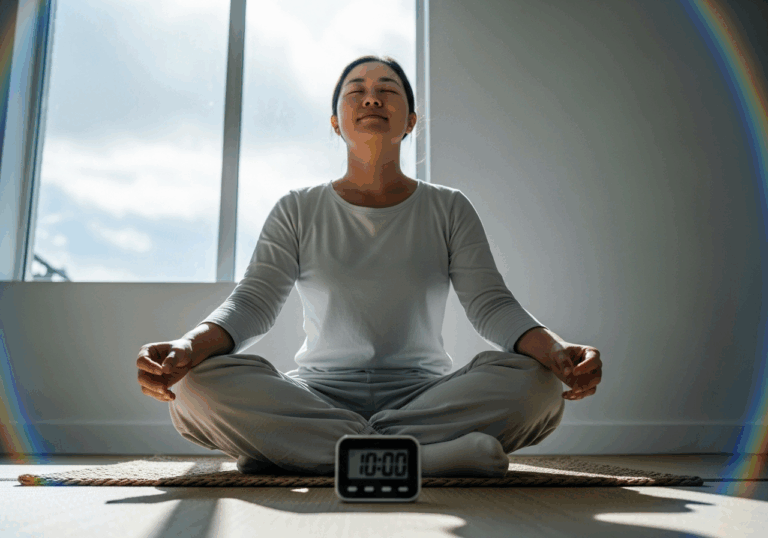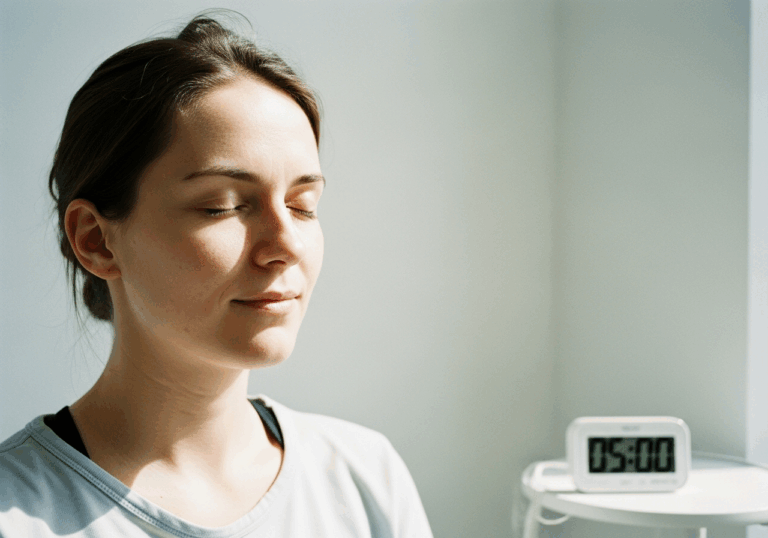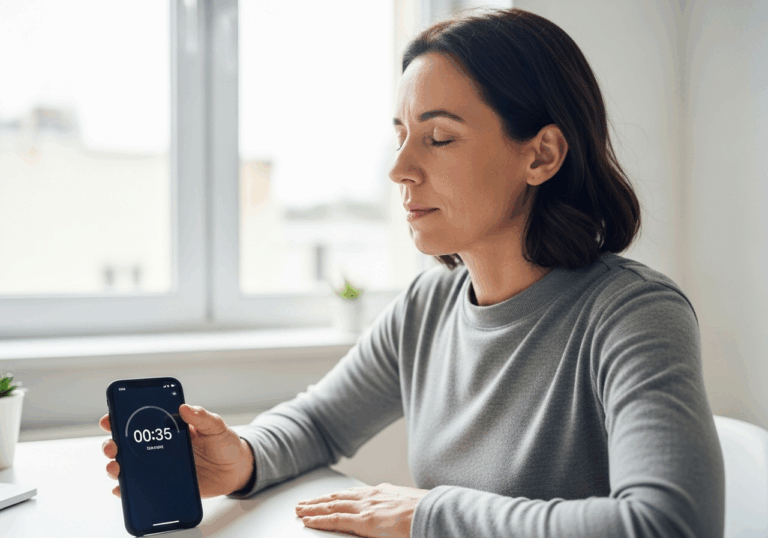Science-Backed Tips
Enhance Wellbeing with Resonance Breathing
20% reduction in anxiety symptoms through HRV biofeedback.
📊 Did you know?
💡 Why It Matters
1️⃣
Improving HRV through biofeedback can enhance emotional regulation and resilience.
2️⃣
A 20% decrease in anxiety symptoms can lead to improved daily functioning and quality of life.
3️⃣
Increased HRV is associated with better cardiovascular health and stress management.
✅ Try These Micro-Tips
🎯
Practice resonance breathing for 20 minutes daily using HRV biofeedback.
🎯
Engage in guided breathing sessions at least 3 times a week.
🎯
Monitor your HRV weekly to track improvements.
🎯
Incorporate mindfulness techniques alongside breathing exercises.
📚 The study
Furthermore, their HRV levels increased significantly, indicating improved emotional regulation and resilience.
This is crucial because enhancing HRV through biofeedback not only aids in managing stress but also contributes to better cardiovascular health.
A 20% reduction in anxiety symptoms can lead to substantial improvements in daily functioning and overall quality of life.
By combining breathing exercises with real-time feedback, individuals can reinforce their self-regulation skills, ultimately fostering a greater sense of well-being.
This innovative approach highlights the importance of psychophysiological techniques in psychotherapy, paving the way for more effective treatments for mood disorders.
❓ Frequently Asked Questions ❓
Learn more
What is resonance breathing?
Resonance breathing is a technique that involves breathing at a specific rate to optimize heart rate variability (HRV). It helps individuals regulate their emotional and physiological responses, promoting relaxation and well-being.
How does HRV biofeedback work?
HRV biofeedback involves using technology to monitor heart rate variability while practicing breathing techniques. This feedback helps individuals learn to control their physiological responses and improve their emotional regulation.
What are the benefits of improving HRV?
Improving HRV is associated with better emotional regulation, resilience, and overall well-being. It can also enhance cardiovascular health and stress management, leading to a better quality of life.
How much can anxiety symptoms decrease with resonance breathing?
Research indicates that anxiety symptoms can decrease by approximately 20% after training in resonance breathing with HRV biofeedback. This reduction can significantly improve daily functioning and overall quality of life.
How often should I practice resonance breathing?
It is recommended to practice resonance breathing for at least 20 minutes daily. Additionally, engaging in guided breathing sessions at least three times a week can enhance the benefits.
What role does mindfulness play in breathing exercises?
Incorporating mindfulness techniques alongside breathing exercises can enhance the effectiveness of the practice. Mindfulness helps individuals stay present and focused, further improving emotional regulation.
How can I monitor my HRV progress?
You can monitor your HRV weekly using biofeedback devices or smartphone apps designed for this purpose. Tracking your HRV can help you observe improvements and adjust your breathing practices accordingly.
Who can benefit from resonance breathing and HRV biofeedback?
Individuals experiencing mood disorders, such as anxiety and depression, can significantly benefit from resonance breathing and HRV biofeedback. It is also useful for anyone looking to improve their emotional regulation and stress management skills.
Is resonance breathing effective for insomnia?
Yes, resonance breathing has been shown to reduce anxiety symptoms, which can contribute to improved sleep quality in individuals with insomnia. By promoting relaxation, it helps create a conducive environment for better sleep.
What is the significance of a 20% reduction in anxiety scores?
A 20% reduction in anxiety scores can lead to notable improvements in daily functioning and overall quality of life. This level of symptom reduction is often considered clinically significant in mental health treatment.





